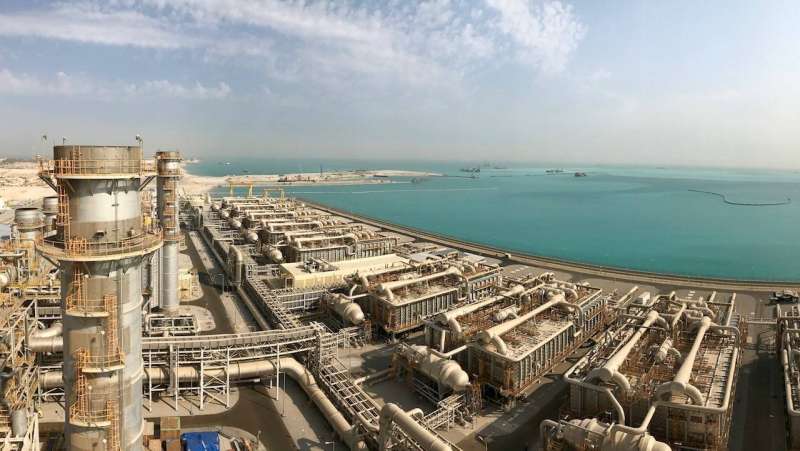According to MEED magazine, the Public-Private Partnership Projects Authority has extended the deadline for companies to reply to a request for qualification for a contract to develop the North Al-Zour 2 and 3 and Al-Khair 1 independent projects for power generation and water production. The initial deadline for responses to the authority’s request was yesterday; interested developers now have until September 6 to do so.
The Al-Khairan 1 project will have a production capacity of 1,800 megawatts of electricity and 125 million gallons of desalinated water per day, while the North Az-Zour 2 and 3 project will integrate the previously planned second and third phases and have a production capacity of 2,700 megawatts of electricity and 165 million gallons of desalinated water per day.
MEED went on to note that Kuwait is under pressure to increase its power generation capacity in light of increased demand, noting that a team made up of the British companies EY, Atkins, and Adelshaw Goddard was awarded the consultant contract for the two projects in April of last year.
She noted that the Ministry of Electricity, Water, and Renewable Energy has a number of plans for several projects to establish gas generating stations, while the ministry is currently working on arranging Two plans to increase the production capacity of the energy complex in the future, explaining that the country’s reserve capacity is threatened by the country’s accelerated demand because it is thought that the actual operational capacity is less than the theoretical capacity of 19 gigatonnes.
For the first phase of a combined power and water project in Nuwaiseeb, Electricity received two proposals in April, and the Authority for Partnership Projects received bids for an advisory service package for the second and third phases of the Shaqaya renewable energy project last year.
In accordance with the recommendations of the expert advisory committee, MEED estimated that the combined output capacity of the two phases would be roughly 3,500 megawatts, indicating that the two phases may be separated into several packages.
The awarding of two oil contracts in Kuwait has been delayed, according to MEED, on the other hand.
She stated that the deadline for submitting bids for one of the two contracts has been postponed from September 4 to October 16 next, and that it is for the building of two 132-kilovolt substations and 33 power lines in northern Kuwait.
The Kuwait National Petroleum Company’s refineries are the subject of the second contract’s postponed tender, which was issued directly by KPC after the time for submitting bids was extended from August 25 to September 8 of the following year.
MEED reported that numerous projects and contracts in the oil and gas sector have experienced significant delays over the past three years, with the primary cause being the nation’s ongoing political issues, specifically the conflict between the government and the National Assembly, which has impeded the implementation of budget reforms.
Kuwait is a supporter of hastening energy production projects.

